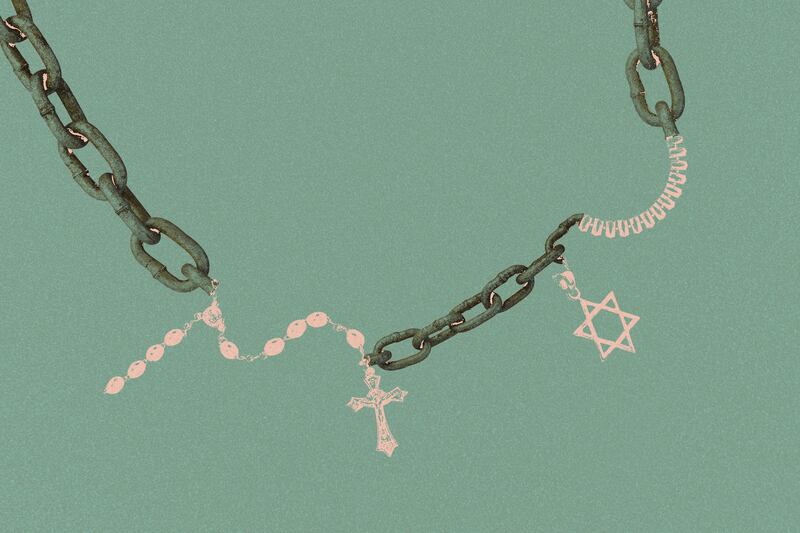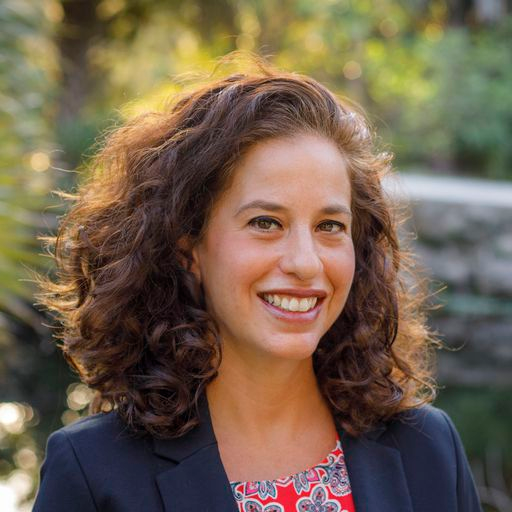They looked like the poster couple for faith and family. He was a successful professional, who provided for his wife and children and led them in prayer. She was a stay-at-home mom with a leadership position in their religious community. They seemed to exemplify how great a life rooted in belief could be.
But behind closed doors, Amy, who asked to be identified by a pseudonym, endured years of spiritual abuse as her husband turned aspects of her faith against her.
Shortly after they married, Amy says, her husband became obsessed with the idea that she wasn’t telling him the truth about her past. He forced her to pray with him about it. Constantly. He insisted she share with him every detail of her unmarried life.
After these discussions, he would manipulate and coerce his physically and emotionally exhausted wife into having sex. Only later did she realize the pattern amounted to sexual abuse, though he claimed he was driven by love and a desire to make their relationship perfect and eternal.
“I feared him and I worshipped him,” Amy said. “He convinced me he was this very righteous guy.”
Amy’s abuser tried to use her faith to hurt her, but faith has also played a role in her healing. Amy, who is a member of The Church of Jesus Christ of Latter-day Saints, now helps others in her community understand and respond to domestic violence.
Experts say Amy’s story shares much in common with the experiences of other people of faith who are victims of abuse. Though religion can be weaponized and used against those who are suffering, it can also be a powerful tool that helps survivors hoist themselves out of abusive relationships, they say.
Blurring religious messages
While there are universal elements in the experience of domestic violence, abuse typically engages with how the victim understands the world and their place in it, said Keshet Starr, CEO of the Organization for the Resolution of Agunot. In other words, domestic violence takes on the characteristics of the community it’s happening in.
“If you are an Orthodox Jew, then a huge part of your identity is formed by Orthodox Judaism ... so the abuse is going to engage with orthodoxy in all these different ways because that’s what matters to you,” she said. “For the abuse to really undercut your identity, that’s where it has to go.”
Sometimes, religious texts will be willfully misinterpreted and deployed against victims. For example, in some Christian communities, the biblical story that Eve was created from Adam’s rib will serve as justification to demand that a woman submit to an abusive husband’s dictates.
In the Jewish community, the get — a document of religious divorce — can become the locus of an abuser’s attempt to control his victim. Jewish men who refuse to grant their estranged wives a divorce turn them into agunot, literally “chained women.” According to religious law, these women are still married and, thus, unable to move on with their lives, occasionally for years on end (Starr’s organization exists to help such women).
In many Muslim communities, there is a widespread — but incorrect — belief that Islam sanctions both male dominance and physical violence against women. “It’s a misuse of our sacred texts,” says Denise Ziya Berte, executive director of the Peaceful Families Project, an organization that focuses on research, curriculum and resources to combat domestic violence in Muslim communities.
“Our job now is to go back to those original texts, to go back to our tradition” and to point to the Quran as a text that actually demands equality for women and human rights for all, she says.
According to the Quran, men and women were created from one soul and have equal standing. That message has been blurred by cultural practices that have become falsely conflated with Islam, Berte says.
Teaching clergy about abuse
For religious communities to help counter these dangerous narratives and abusive behaviors, they have to be informed. That’s why many faith-based organizations focus their efforts on educating faith leaders and their congregations about domestic violence.
People of faith who are facing abuse often reach out to religious leaders first. Without training, many pastors, rabbis and imams urge victims to stay and work things out, experts say.
Additionally, sometimes religious leaders, in an attempt to help, ask victims if they want to come in with their partner to talk, despite the fact that couples’ counseling can be harmful in situations of domestic violence, says Deborah Rosenbloom, the chief program officer of Jewish Women International.
If a religious leader doesn’t know that, they’ll end up saying things like, “‘You can go to couples counseling and work it out,’ ... instead of saying, ‘Are you safe? I’m concerned for you. Here’re some resources and, by the way, our religion does not condone this: You have a right to live a life free of violence anywhere and especially in your home and among your loved ones,’” Rosenbloom says.
Whether confiding in a lay person or a spiritual leader, domestic violence victims are often met with disbelief. That was Amy’s experience when she first shared her secret with a church elder.
“The male leader did not believe (me). He said I was stressed and said I needed to just endure,” Amy says. “Yet when I went to female leaders I was met with empathy and compassion.”
She feels that the male leader’s reaction stemmed from a lack of training — an issue that she and experts alike say needs to be addressed in every religious community.
Religious leaders, Amy says, should be taught to refer domestic violence victims to professionals. “If not to a counselor, then to a victims’ advocate.”
It’s problematic that religious leaders don’t get training for handling this important issue while they’re in seminary, experts say.
They add that, in the absence of training, religious leaders sometimes base their responses not on official doctrine but on their beliefs about what their faith teaches. Lauri Przybysz, a co-founder of Catholics for Family Peace, offers the example of priests who remind victims of domestic violence that marriage is a holy sacrament and, therefore, they must remain in their unions.
“If the clergy isn’t educated about domestic violence and if they don’t know what the church teaches about it, they might give improper and harmful advice to go back and take it,” says Przybysz.
This actually goes against the teachings of the church, Przybysz argues, as Catholicism places an emphasis on “the dignity of every human person.”
“Because you got married doesn’t mean that people can treat you like a slave. It’s an aberration of marriage for that to happen in a couple,” she says. “It’s a sign that the abusive spouse didn’t enter the marriage with the right intention to make a sacramental marriage.”
Przybysz adds that it’s equally important for parishioners to be educated on the issue since congregants will sometimes reach out to one another before going to a priest. Anyone in whom a victim of domestic violence confides becomes a “first responder,” so to speak.
Educating religious communities
The common misconception that domestic violence is only physical also has to change, experts say, and people need to understand the myriad ways abuse can show up in relationships. They also need to be able to spot red flags that pop up in children who come from homes where a spouse is being abused by their partner.
To that end, Jewish Women International is partnering with a number of Jewish Community Centers to educate those who work in the centers’ preschools, security personnel and camp staff about domestic violence. Such initiatives have a ripple effect in the community, said Rosenbloom.
Camp counselors, she explains, are “young and, if you think back, you’re starting relationships then.” Not only will the training allow them to understand what a healthy relationship looks like, but they will also “be better counselors to children who are experiencing (domestic violence) in the home,” Rosenbloom says.
The project will start with five Jewish Community Centers and will expand over time to almost 100 nationwide.
The Peaceful Families Project brings instruction about domestic violence not only to faith leaders but to the Muslim community more broadly — including middle schoolers, high schoolers and college-aged Muslims. It offers a variety of resources, including a Muslim version of the wheel of power and control — a tool commonly used by counselors and advocates to help victims and others recognize abusive behaviors — so that Muslims can understand the shape such behaviors will take in their own community.
The organization also aims to help perpetrators, Berte says, noting that the Prophet Muhammad said we are to help both the oppressor and the oppressed.
“What do we do for the oppressor?” she says. “We call their attention to the oppressing; we make it impossible for them to continue in the sin of oppression.”
Berte and others agree that addressing the problem of domestic violence in religious communities isn’t enough. Only a broad cultural shift in how we understand and deal with abuse will bring about meaningful change.
“Education is so important not just for the victims but because there is a huge community aspect,” says Starr. “You will never stop abuse from happening. It’s a human pathology we see everywhere throughout time and history. But we can change the air that abusers breathe.”


 alt=Mya Jaradat
alt=Mya Jaradat